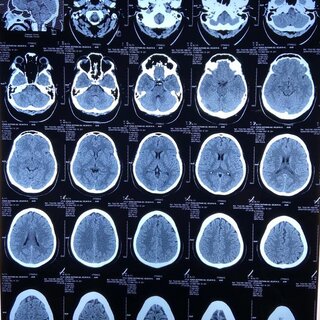Contingency Management: Good Medicine That’s Hard to Swallow

There is a technique used in substance use disorder recovery programs that has shown effectiveness in study after study and repeatedly in real-world settings, and yet there is resistance to expanding its use. Why? Because it involves compensating people to recover.
The technique has been used informally for centuries: provide incentives to change behavior. It has been refined over decades in combating alcohol use disorder and drug addiction: provide small financial incentives to attend therapy, take prescribed medications, and abstain from use.
“Contingency management is a highly effective treatment for substance use and related disorders,” writes Nancy M. Petry, Professor of Medicine at the University of Connecticut Health Center. Her paper presents evidence of contingency management in reducing drug use, increasing attendance at therapy sessions, reliability in taking prescribed medications, and even maintaining an exercise program. “Greater awareness and use of contingency management in practice may improve outcomes across a range of mental health and related conditions,” writes Petry.
Dr. Petry relies heavily on a meta-analysis from a team at the University of Vermont that found voucher-based reinforcement therapy (VBRT) “generated significantly better outcomes than did control treatments.” She cites many other studies that show contingency management programs as effective in methadone treatment facilities, for dependencies on alcohol, marijuana and benzodiazepines, and even nicotine addiction and eating disorders.
So why hasn’t contingency management spread across the U.S. to help treat those suffering from substance use disorders? Because it looks like you’re paying addicts to get better — and you are — because it is both humane and cost-effective. Petry points out that the relatively small amounts needed for incentives and vouchers have been donated by community groups. The cost savings for both the individual and society are enormous.
Dr. Petry finds some elements that cause a contingency management program to be successful:
- The reward interval must be brief, such as passing a daily or weekly drug test.
- The minimum reward amount cannot be “too low.”
- The amount of the reward should increase the longer the abstinence.
A team of researchers studied the implementation of contingency management in recovery clinics and found the practices inconsistent, to say the least. They found four “parameters related to CM efficacy: reinforcement magnitude, immediacy, frequency, and escalation.” The following reasons were cited as problems with contingency management programs by recovery providers:
Low magnitudes (≤ $25/client), delayed reinforcement, failure to escalate reward values, and offering reward opportunities less than weekly.
When it’s done correctly, there’s little doubt that contingency management is effective. A team of researchers from the University of Vermont performed a systematic review and meta-analysis of 74 randomized clinical trials involving 10,444 adults receiving medication for opioid use disorder. Contingency management was associated with positive outcomes in “stimulant use, polysubstance use, illicit opioid use, cigarette smoking, therapy attendance, and medication adherence.”
The authors conclude: “Policies facilitating integration of contingency management into community opioid use disorder services are sorely needed.”
Written by Steve O’Keefe. First published February 27, 2024.
Sources:
“Contingency management: what it is and why psychiatrists should want to use it,” The Psychiatrist, May 2011.
“A meta-analysis of voucher-based reinforcement therapy for substance use disorders,” Addiction, February 2006.
“Paying addicts for rehab: Controversial drug treatment taking hold in California,” San Francisco Chronicle, January 4, 2024.
“Examining implementation of contingency management in real-world settings,” Psychology of Addictive Behaviors, 2020.
“Contingency Management for Patients Receiving Medication for Opioid Use Disorder: A Systematic Review and Meta-analysis,” JAMA Psychiatry, August 4, 2021.
Image Copyright: liudmilachernetska.





1 COMMENTS